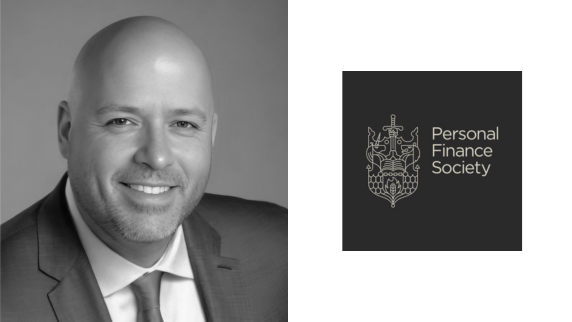
Fortnightly financial #43 Don MacIntyre
Richard Freeston Clough, Communications and Stakeholder Business Partner, speaks to Personal Finance Society CEO Don MacIntyre about providing guidance on personal finance and improving financial education.
Can you tell our readers more about the Personal Finance Society and who you represent?
The Personal Finance Society (PFS) is the UK's largest professional body for financial planners, advisers, and those engaged in the financial advice profession. We represent over 39,000 members, including financial planners, paraplanners, and other professionals who are dedicated to helping individuals make informed decisions about their personal finances. Our mission is to raise professional standards in the industry, promote ethical behaviour, and enhance consumer trust through qualifications, continuing professional development (CPD), and by providing vital resources to both members and the public.
Your organisation provides free financial education workshops to schools and colleges, which sounds like a great initiative. What do you think are the current big gaps in financial education for young people today?
Despite recent improvements in financial education, there are still significant gaps that need addressing. Many young people leave school without a clear understanding of fundamental financial concepts like budgeting, saving, debt management, and the importance of pensions or investments. Additionally, with the rise of digital financial tools, many young people are not fully equipped to navigate the complexities of online banking, cryptocurrency, or other emerging financial technologies.
How do you think we can effectively deal with these gaps?
To effectively address these gaps, we need a combination of formal education and practical experiences. First, financial education should be integrated more thoroughly into school curriculums at a younger age, with a focus on real-life financial scenarios. Partnerships between schools and organisations like the PFS can play a key role in this by offering workshops and resources that provide students with hands-on learning opportunities. We also need to focus on building financial resilience and critical thinking skills, so young people are better prepared to adapt to a rapidly changing financial landscape. It’s essential to ensure that education is accessible to all students, regardless of their background, to help close the financial literacy gap.
Your organisation runs the annual Personal Finance Society Personal Finance Awards to recognise the best in the profession. What do you think makes a great financial adviser, and what should people look for if they are considering getting financial advice?
A great financial adviser goes beyond just offering technical knowledge and expertise. While qualifications are essential, what truly sets a great adviser apart is their ability to listen, understand the unique needs of their clients, and offer tailored solutions that align with individual financial goals. Transparency, trustworthiness, and ethical conduct are key traits that clients should look for. Moreover, a great adviser helps to empower their clients, ensuring they understand their financial situation and the advice given, rather than simply making decisions on their behalf. It’s about creating a partnership where clients feel supported in achieving their long-term financial goals.
Now, on a more personal note, if £10,000 landed in your lap tomorrow, what would you do with it?
If £10,000 came my way tomorrow, I’d start by assessing my own financial plan to ensure it aligns with my goals. I’d likely divide it between contributing to my long-term investments, perhaps topping up my ISA or pension, and setting aside some funds for a meaningful personal enjoyment, like travel. Of course, I am thinking about this with a professional advisor’s mindset but there are numerous ways to approach investments. Ultimately £10K landing in anyone’s lap, your decisions are driven by your circumstances. Beyond the investment pathway and if my circumstances permitted, I would also think about the impact of charitable giving or supporting a cause close to my heart. At this stage, with children in university, my choice would likely be made for me!
Thanks for sharing your thoughts with us Don, really interesting to hear about how you're working to close the gap in young people's financial education.
The content of any discussions shouldn't be taken as an indication of future FSCS policy positions. The views expressed by guests are their own and don't reflect the views of FSCS.
We would love everyone to dedicate a regular extra five minutes to check their financial products and services are FSCS protected.